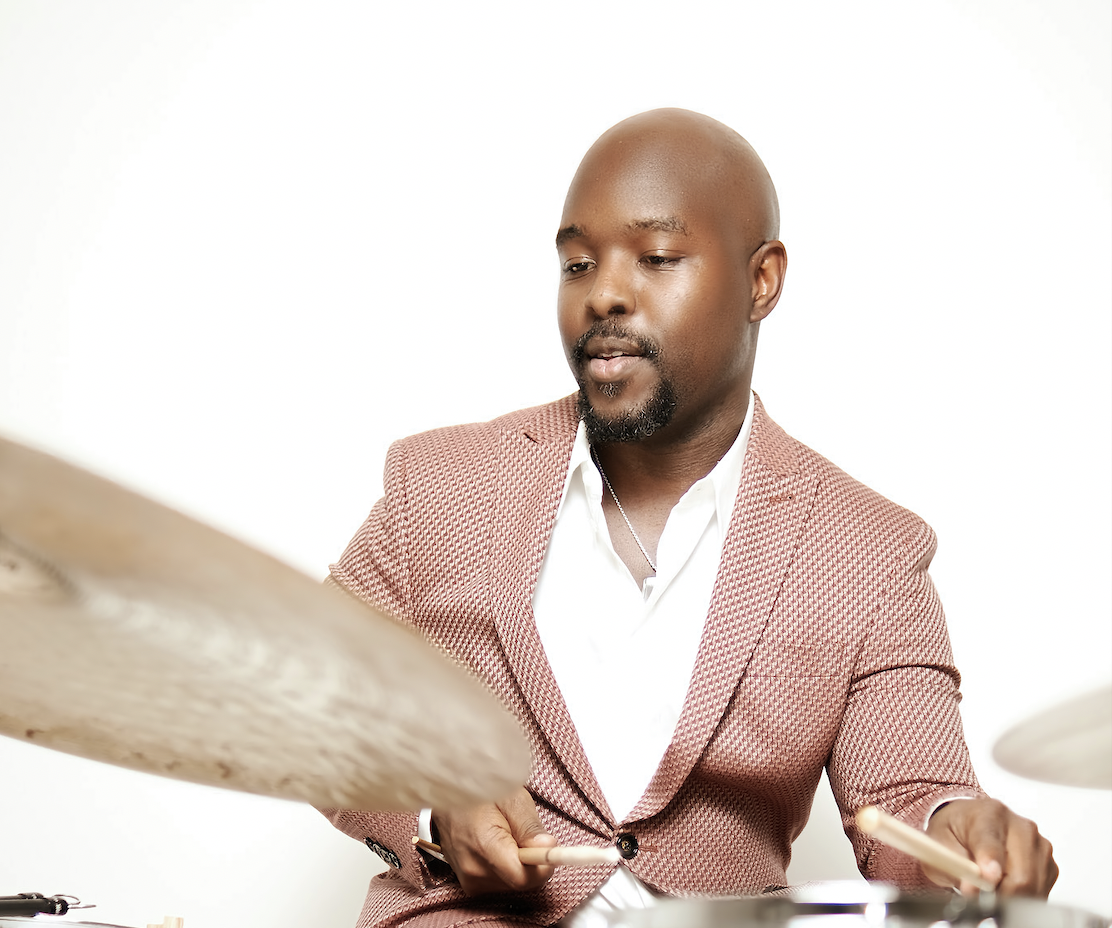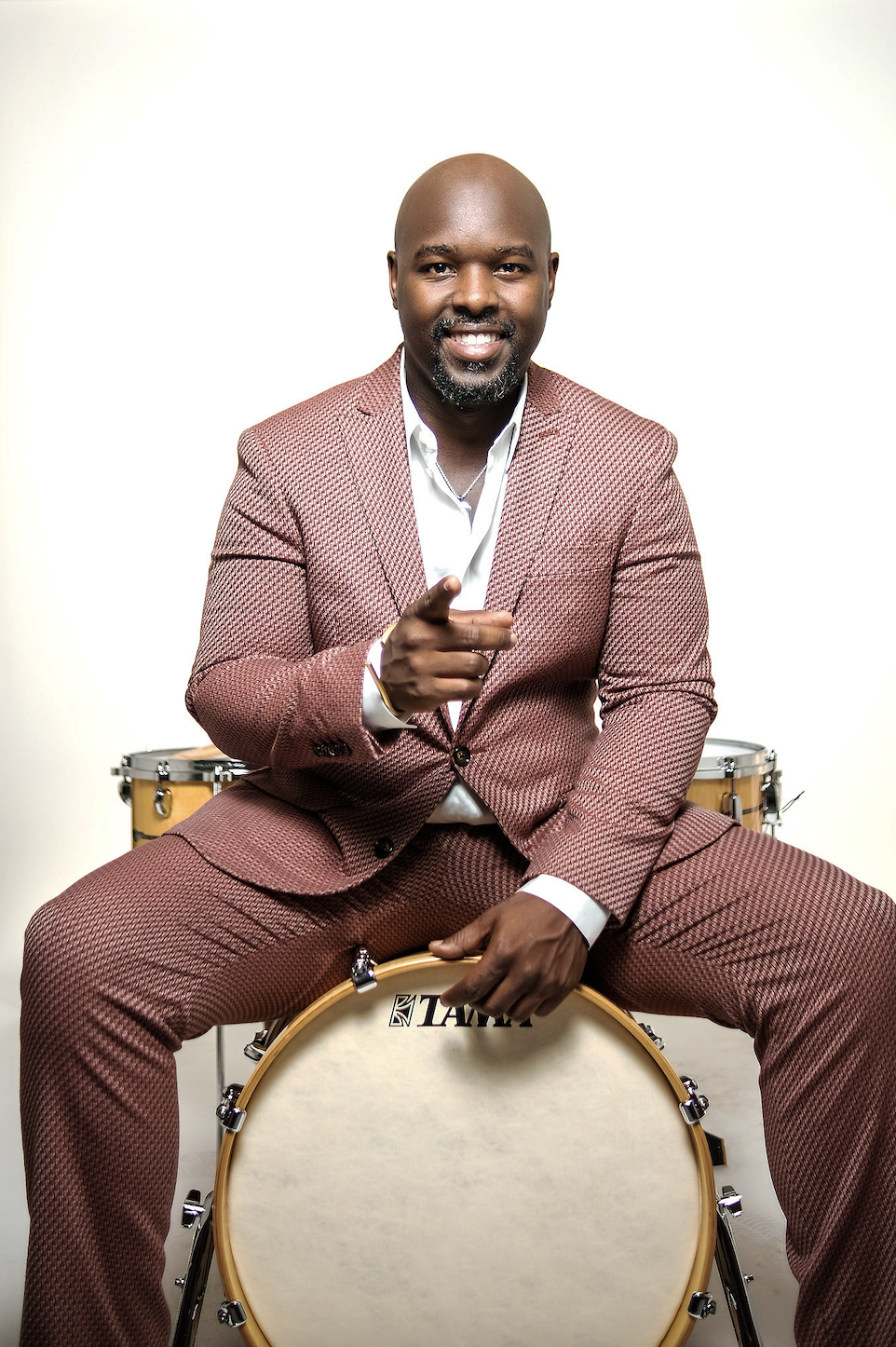
There’s an often-quoted joke amongst musicians : “How do you make a million dollars playing jazz? Start with two million dollars.” While jazz is routinely considered to be a true American art form, from jazz artists’ current fame to total albums sold, its recognition by the overall larger audience can still seem shortsighted. Thankfully, this is not the case for drummer-composer Ulysses Owens Jr.
The Jacksonville native began playing drums at age three, landed a full scholarship to the Juilliard School’s inaugural jazz program, and in the past two decades the now-40-year-old Owens has recorded and toured the world with some true jazz heavyweights. He’s also an ardent activist-educator in introducing the jazz tradition and music awareness programs to the next wave of musicians.
“I know that I stand on the shoulders of incredible giants that came from Jacksonville.”
Owens has been featured on eight previous albums that were nominated for a Grammy Award. He scored two Grammys as drummer on the albums Dedicated to You: Kurt Elling Sings the Music of Coltrane and Hartman (2010 Grammy win) and Christian McBride’s The Good Feeling, which won in 2012.
Now he’s landed the trifecta. At the 2023 Grammy Awards, the 2022 release Generation Gap Jazz Orchestra won for Best Large Jazz Ensemble Album. Co-led by pianist/composer Steven Feifke and trumpeter Bijon Watson, the 17-piece ensemble harkens back to the legendary mentorship groups led by Art Blakey and Horace Silver—pairing seasoned players with younger, emerging talents.
JME spoke with Owens and asked about how it feels to be a three-time winner, the unique process of making the music swing during the pause-buttoned world of the pandemic, and the need to bring Jacksonville’s rich jazz scene and history into the spotlight.
Congratulations on the Grammy win for the Generation Gap Jazz Orchestra release. How did you feel when you realized you’d won?
Well, I tell people, I’ve been in this process a while: I’ve now had three wins. I’ve had, like, eight nominations. And so it’s funny: it’s never the albums that you think it’s going to be. Right? (Laughs) So it was shocking, because, you know, Steven and I are really close and we actually just had lunch a few months ago; and we had talked after the nomination and we both thought “Oh, it’ll probably be a shot in hell. We were on an independent label, we were independent artists, we were a young band, the concept of the record, etc.” So, it hit all the metrics for why it shouldn’t win. (Laughs). But Steven, Bijon, and a lot of us on the album had been on so many other projects. And I think people on the voting committee recognized us. So it was very affirming.
How did you originally get involved with this project?
So yes, this is the funny thing about it: you have to be careful who you meet and how you treat them, because you don’t know what they will become. Steven Feifke got to New York maybe six or seven years ago. He was a young little, you know, Jewish kid from South Africa (laughs) who approached me: “Hey, Ulysses I’m an arranger and I want to write for your big band.” And I explained to him, “First of all, you just got to New York a few months ago: I’m not having you write for my band!” (Laughs). But I told him I’d help him in any way that I can, so he asked me to mentor him.
So long story short, by the time I did my second Big Band album (Songs of Freedom) back in 2019, he really wanted to write an arrangement. So I had the song “Harlem Harlem Harlem” from the singer Charles Turner, that I really wanted it as a big band arrangement. And Steven said, “Ulysses, I’ll do it for free.” So we fostered that relationship. Then he would ask me to do different gigs for him and fast forward, he had put out a few albums, and he was starting to kind of make a name for himself.
I knew Bijon because he had been involved with the Clayton-Hamilton Jazz Orchestra and John Beasley MONK’estra. Steven hit me up in the middle of the pandemic. He told me that I was one of his favorite drummers, this was a big project for him, and he felt like he needed my help. And he asked, “Do you have a studio?” And I had just built my studio in Jacksonville and it was so raggedy (laughs) but he said, “Well, I’m going to send you these parts, and you can record the drums for me.” And that’s how that entire project happened.
So this Grammy-winning big band album was actually recorded remotely, during the pandemic?
(Laughs). Yes! The whole concept kind of played out during the pandemic.

There’s that amazing performance of “I’ve Got Algorithm” on YouTube. How was that, creating this hard-swinging big band album, long distance?
It started with the drums: with me. Feifke did all the arrangements through [music notation software] Finale or Sibelius and he sent me the MIDI files and the charts. I was in my studio with the MIDI of everything, you know, playing to whacked-out computer sounds (laughs) and I laid down the drums. And he and Bijon came back to me a few weeks later: “Can we go back over these [digital recording] regions? We want to catch up even more.” Well, it was already hard for me because I was playing along to computer sounds! So it took us about a month to finish my thing. Then they sent it to [bassist] Dan Chmielinski, in L.A., then Steven laid down his piano tracks. Then they brought that recorded music to everyone else. So, it was deep. I want to give a shout out to another person who used to be a North Florida musician, Liston Gregory III, who graduated from UNF and just moved to L.A. He was the engineer for me and helped me set up my Pro Tools studio to record and truly helped me to record my contributions.
You are part of the Jacksonville jazz heritage which has a pretty rich lineage – notably legends like Sam Jones, John Betsch, Charles Tolliver, Longineu Parsons II and Bunky Green, just to rattle off a few. And this city is a continual wellspring of newer, great and successful players. Do you keep that kind of local energy in mind as you move through the experience of being a successful jazz artist?
I do, actually. I know that I stand on the shoulders of incredible giants that came from Jacksonville. And to be honest, what I’ve learned from being in Jacksonville was a huge part of who I am now.
I think that’s my frustration now in being back there, because I feel like Jacksonville can seem so disconnected from art and culture in general and/or they’re very disconnected from jazz. And unless it’s the time for the Jacksonville Jazz Festival, that’s the only time we think about jazz in our city, but the rest of the year we don’t recognize all of the local pioneers and our scene.
But I do recognize that and now I’m part of this continuum… like [locally-based soul-jazz legends] Doug Carn and Jean Carne. I grew up playing with Doug Carn; I grew up playing with Bunky; I knew Longineu Parsons III from Douglas Anderson; Ricky Kirkland was my teacher. All these great players like Kevin Bales. And players like Wynton Marsalis used to come through Jacksonville and Fernandina all the time. I grew up listening to Na’im Rashid’s radio show [Jazz Vibrations radio show on V101.5 FM]. I spoke with [WJCT President and CEO] David McGowan a few weeks back and asked him about bringing Na’im back on the air before he leaves us. Jazz radio helps and transforms so many of us, it helps reignite that passion and knowledge of what our city could and does produce. So, there is a local legacy that I talk about a lot when people interview me. There’s a lot here and I look forward to more people unpacking that knowledge and heritage.
You can purchase Generation Gap Jazz Orchestra here.

Mr. Al Pete and Notsucal Release Their Latest Collab, ‘G4.5’

Dinner Party, Tom Misch and More from the Neighborhood with Mr. Al Pete

An Ultra-Chill Playlist from the Latest Episode of Electro Lounge

Sing Out Loud Festival Returns With Hozier, Beabadoobee, Father John Misty, Vance Joy and More

Chicago Alt-Country Faves Wilco Return to St. Augustine with Indie-Folk Great Waxahatchee

Looking for an Alternative to Spotify? Consider Hopping on the band(camp) Wagon

Khruangbin to Bring ‘A LA SALA’ Tour to St. Augustine in April

Perfume Genius, Flipturn, Tamino + Mitski and 6 New Songs to Stream

Song of the Day | “all tied up” by Glixen



